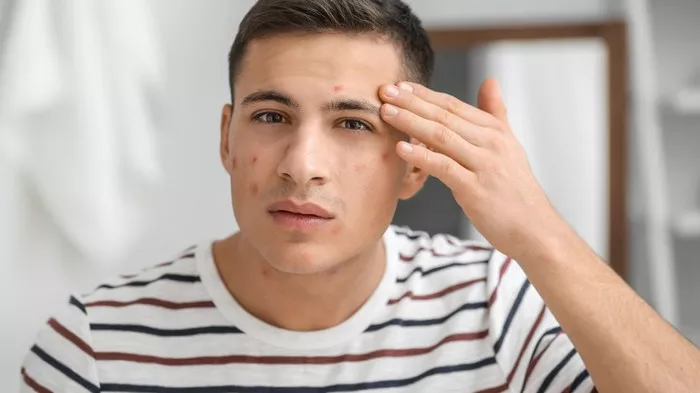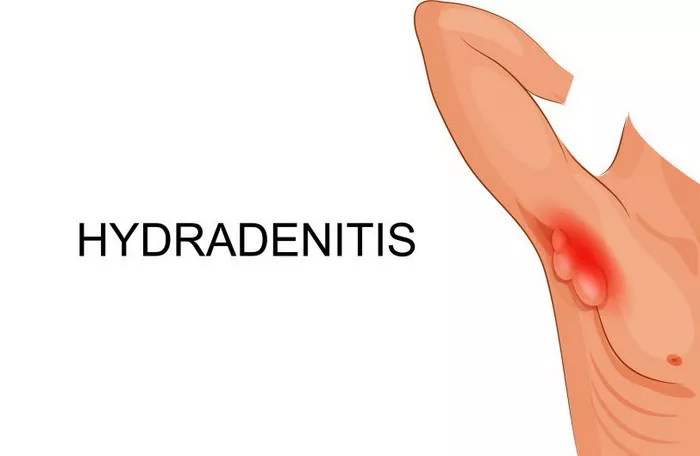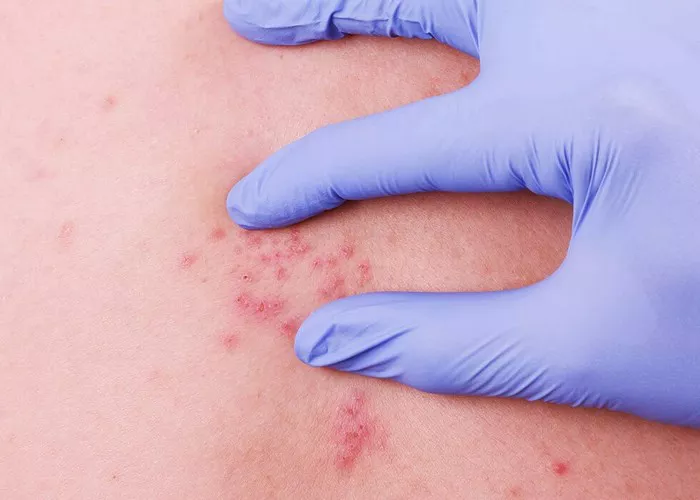Hair loss is a concern for many individuals, and for those with psoriasis, the fear that their condition might contribute to losing hair can be particularly distressing. Psoriasis is a chronic autoimmune skin condition that affects millions of people worldwide, characterized by red, scaly patches on the skin. When psoriasis affects the scalp, it can lead to discomfort and visible symptoms that raise concerns about potential hair loss. This article aims to address these concerns by exploring the relationship between psoriasis and hair loss, differentiating between direct and indirect impacts, and offering guidance on managing both conditions.
SEE ALSO: What Causes Psoriasis on the Back of the Neck?
What is Psoriasis
Psoriasis is a chronic autoimmune disorder that causes the rapid buildup of skin cells, leading to the formation of thick, red, and often scaly patches on the skin. These patches can appear anywhere on the body but are commonly found on the elbows, knees, lower back, and scalp. The exact cause of psoriasis is not fully understood, but it is believed to be related to an overactive immune system that mistakenly attacks healthy skin cells, leading to inflammation and accelerated skin cell production. Psoriasis is a lifelong condition with periods of flare-ups and remission, and while it is not contagious, it can significantly impact a person’s quality of life.
Direct Impact vs. Indirect Impact
When it comes to hair loss, it’s important to differentiate between the direct and indirect effects of psoriasis.
Direct Impact
Psoriasis itself does not directly cause hair loss. The condition primarily affects the skin, and while the scalp is a common site for psoriasis plaques, the disease does not target hair follicles directly. Therefore, the presence of psoriasis alone on the scalp is not enough to cause hair to fall out. However, the way psoriasis manifests on the scalp can lead to hair loss indirectly.
Indirect Impact
Scalp psoriasis, a type of psoriasis that occurs on the scalp, can indirectly lead to hair loss through a few mechanisms:
Inflammation: The inflammation associated with scalp psoriasis can extend deep into the skin, affecting the hair follicles. When these follicles become inflamed, they can weaken, leading to temporary hair loss. This type of hair loss is typically reversible once the inflammation subsides and the psoriasis is managed effectively.
Scratching: One of the most troublesome symptoms of scalp psoriasis is intense itching. Many individuals with scalp psoriasis find themselves scratching frequently to relieve this discomfort. However, excessive scratching can damage the hair follicles, leading to hair breakage and hair loss. In severe cases, this can result in noticeable thinning of the hair or even bald patches.
Other Causes of Hair Loss
It is important to remember that hair loss can result from various factors unrelated to psoriasis. Common causes include:
Genetics: Hereditary factors play a significant role in hair loss, particularly in conditions like male or female pattern baldness.
Stress: High levels of stress can lead to a condition known as telogen effluvium, where hair follicles prematurely enter the resting phase, leading to shedding.
Hormonal Changes: Hormonal fluctuations, particularly those related to pregnancy, menopause, or thyroid disorders, can cause hair loss.
Medical Conditions: Conditions such as alopecia areata, lupus, and other autoimmune diseases can lead to hair loss. Additionally, certain medications used to treat conditions like cancer, arthritis, or depression can have hair loss as a side effect.
Given the wide range of potential causes, it is crucial for individuals experiencing hair loss to seek professional advice to determine the underlying cause.
Importance of Consultation
If you have psoriasis and are experiencing hair loss, it is important to consult with a dermatologist or healthcare provider. A proper diagnosis is essential to determine whether the hair loss is related to scalp psoriasis, another underlying condition, or a combination of factors. A dermatologist can assess the severity of the psoriasis, evaluate any hair loss, and recommend appropriate treatments tailored to your specific situation.
Treatment Options for Psoriasis
Managing psoriasis effectively can help reduce the risk of hair loss associated with the condition. Common treatment options for psoriasis include:
Topical Treatments: These are often the first line of defense against psoriasis and include corticosteroids, vitamin D analogs, and retinoids.
These medications help reduce inflammation, slow down skin cell turnover, and relieve itching.
Phototherapy: Also known as light therapy, this treatment involves exposing the skin to controlled amounts of natural or artificial ultraviolet light. Phototherapy can help reduce the severity of psoriasis plaques and manage flare-ups.
Systemic Treatments: For more severe cases of psoriasis, systemic treatments such as oral or injectable medications may be prescribed. These medications work throughout the body to reduce inflammation and suppress the overactive immune response.
Biologics: Biologics are a newer class of drugs that target specific parts of the immune system involved in psoriasis. These medications can be very effective for moderate to severe psoriasis and are often used when other treatments have not been successful.
Treatment Options for Hair Loss
If hair loss has occurred, specific treatments may be recommended based on the underlying cause. For hair loss related to scalp psoriasis, managing the inflammation and reducing itching can help minimize further damage to hair follicles and promote regrowth. In some cases, a dermatologist may recommend:
Medicated Shampoos: These shampoos contain ingredients like salicylic acid or coal tar, which can help reduce scaling and itching, thereby reducing the urge to scratch.
Minoxidil: This over-the-counter treatment can help stimulate hair growth in cases of hair loss.
Steroid Injections: For more severe cases of hair loss, corticosteroid injections into the scalp may help reduce inflammation and promote hair regrowth.
In conclusion, while psoriasis does not directly cause hair loss, the inflammation and itching associated with scalp psoriasis can lead to temporary hair shedding. By consulting with a healthcare professional and following a tailored treatment plan, you can manage both your psoriasis and any related hair loss, helping to restore your confidence and maintain the health of your scalp and hair.
Related Topics:

























